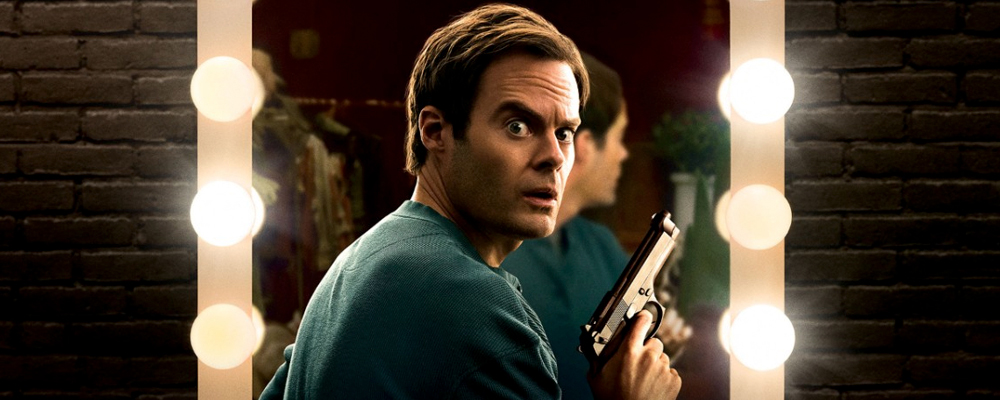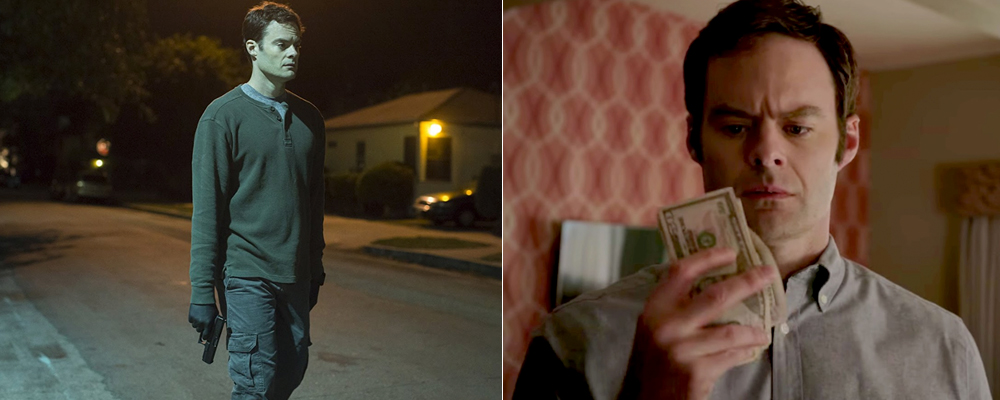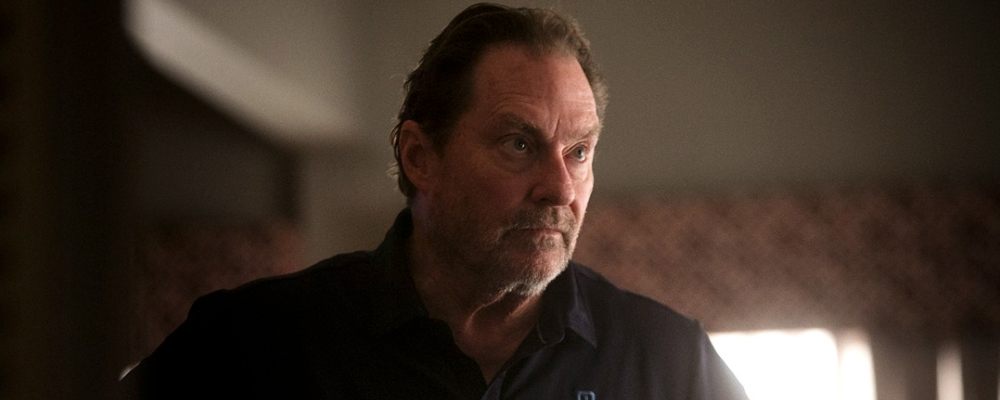Bill Hader Shines as a Hitman With a Heart of Gold in HBO’s New Dark Comedy ‘Barry’
Aaron Berke
There are few ways to make murder funny. Bill Hader playing a hitman who discovers a late-blooming passion for theater is one of them. HBO’s “Barry” follows Hader’s character, Barry Berkman, a hitman for hire who tracks down one of his latest targets to an acting workshop in Los Angeles. Barry is immediately drawn to the class, where its performers honor their true selves in a way the repressed Barry never could. As Barry tries to uncover his passion, the series alternates between modes of dark comedy and high-stakes drama. Somehow, “Barry” manages to balance it all and, like its title character, discover its true colors.
In the pilot episode, we learn that Barry once served in Afghanistan, and ever since he returned from active duty, he’s been playing hitman for his handler, Fuches (Stephen Root). Barry yearns for a line of work outside the realm of gun-for-hire. But Fuches constantly tries to convince Barry that he’s doing what he does best. Barry’s misgivings come to fruition when he’s hired by Chechen mafia bosses NoHo Hank (Anthony Carrigan) and Goran Pazer (Glenn Fleshler) to eliminate a personal trainer who’s been sleeping with Goran’s wife.
Barry follows the personal trainer right into an acting class taught by self-professed legend Gene Cousineau (Henry Winkler), a tough-love instructor who spots some potential in Barry. As Barry gets to know the other students, he falls for Sally Reed (Sarah Goldberg), and begins to discover his authentic self. Even as the acting classes bring Barry out of his shell, his old life continually claws its way back to him. Barry is a man torn between two worlds.
In any other series, the constant tonal switches between comedy and drama would be incredibly jarring. But in “Barry” the changes work so well because they’re evocative of exactly the conundrum Barry is caught up in. The world of a hitman is filled with violence and bloodshed. But the world of theater is filled with passion and comedy. Barry constantly dips in and out of both worlds, and the series’ tone dips with him. Early on in the series, Goran and Hank, displeased with Barry’s refusal to eliminate their target, kidnap Fuches and threaten to kill him unless Barry takes out a rival Bolivian gang. An indifferent Barry attends theater class instead, preferring to read lines with Sally over saving his kidnapped mentor. The contrast is hilarious, but even as Barry humorously attempts to put his old life aside, the violence continues on.
Meanwhile, Sally takes on the role of co-protagonist, as her life begins to parallel Barry’s. In contrast to how Barry is seeking to use theater to bring out his true self, Sally is faced with the reality of how theater can be a source of superficiality. Sally goes on several auditions, excited for fresh opportunities. In one scenario, she discovers she only got the audition because of a handout from a vain and insincere friend. In another, Sally’s agent bails on her because she won’t sleep with him. Sally pursues her dream, but consistently discovers that she can’t escape harsh reality. Her bubble keeps getting popped, just like Barry’s.
Hader, who also co-writes and directs the series, channels a surprising amount of relatability into Barry. Hader is a featureless statue on the outside, but his eyes reveal a great deal of emotional turmoil. The theater winds up being the outlet through which Barry, and Hader, release the emotions. A memorable sequence involves Cousineau berating Barry for allowing his scene partner to step all over him. As Barry stands on stage, incapable of describing which imaginary can of soup he wants, Cousineau accuses him of being so focused on what other people want from him that he has no idea what he wants himself. This accusation gets to the heart of Barry’s dilemma. For years he’s been directed by Fuches, and in Barry’s various interactions with other people, we witness how he constantly hides his own feelings. In Barry’s very first scene with Sally, she comments on how generous he is. In their line readings, he gives everything to her and saves nothing for himself.
This element is what makes Barry so relatable. Underneath the hitman’s armor, Barry is just a confused guy who spends all his time carrying out orders from others. As the audience, we can’t relate to a killer, but we can certainly relate to someone spending all the energy they have on an unrewarding job. Barry doesn’t know how to ask for what he wants, and the only way he can assert himself is by putting bullets in people’s skulls. Barry might be a killer by profession, but in every other way he’s just a regular guy who struggles with insecurities. It’s this dynamic that ultimately leads to the series biggest question – can a killer truly be redeemed?
One of the series’ later episodes uses an interesting parallel to “Macbeth” to try and tackle that question. The acting class discusses Macbeth’s culpability in Lady Macbeth’s plot during a staged line reading from the play. Macbeth, the class agrees, is just as responsible as his wife. She may have given the orders, but it was Macbeth’s hands that were covered in blood. A profoundly agitated Barry disagrees, saying it wasn’t Macbeth’s fault. Macbeth was simply following orders, and he didn’t know any better. Barry’s is a lonely voice in a sea of opposition. Macbeth, the class notes, didn’t get a happy ending, nor did he deserve one. Barry wonders what kind of fate he deserves. The series, with its alternations between comedy and tragedy, consistently challenges the viewer to ask that question, without offering an easy answer.
“Barry” is a surprisingly unique and challenging television series. Its constant switches between gallows humor and bloody drama often catch the viewer off guard, reminding us never to take Barry’s journey for granted. He’s both a violent killer and a sweet, sensitive guy. “Barry” ultimately shows how theater can bring life to an existence steeped in death, if only temporarily.
“Barry” premieres March 25 and airs Sundays at 10:30 p.m. ET on HBO.



